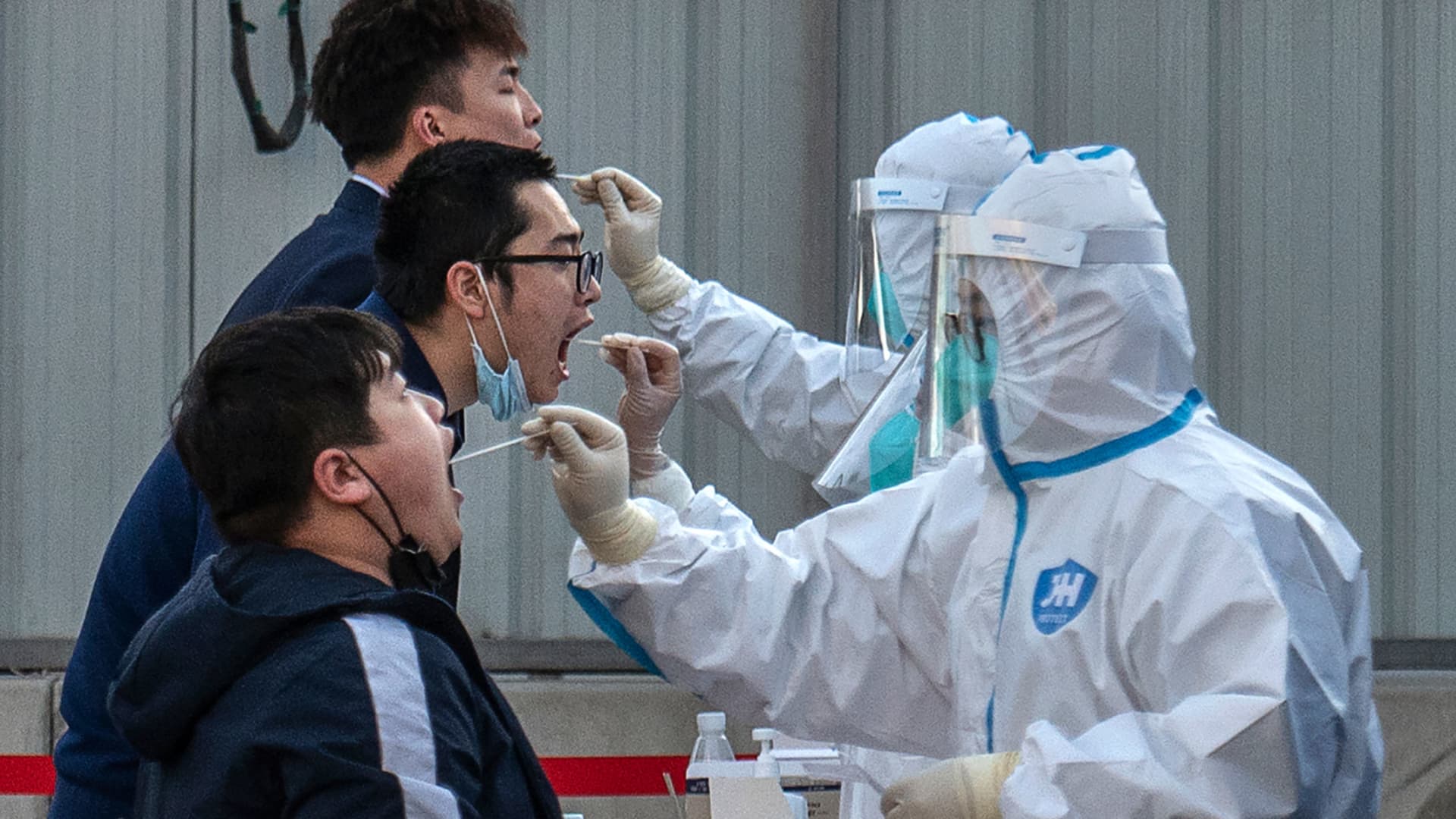
At the onset of the Covid-19 pandemic, China’s strict “zero-Covid” policies managed to keep Covid-19 at bay. More than two years later, the country’s ongoing controls are still weighing down its economy and stalling global supply chains.
“Zero-Covid has become one of the select drivers of global recession,” Steve Morrison, senior vice president at the Center for Strategic and International Studies, told CNBC in an interview.
Major trade hubs such as Shanghai and Beijing, after responding to waves of omicron-driven infections, require workers to have negative Covid tests to enter public spaces. The demanding quarantine and testing rules have thwarted truckers on roads as well, driving up the amount of time it takes for goods to get to Chinese ports for export.
When it comes to manufacturing, China has forced some companies to operate within a closed-loop system — similar to the “bubble” strategy — where factory workers live on-site. Companies such as Tesla and iPhone manufacturer Foxconn have had to implement closed-loop systems.
That’s not to mention the poor weather, labor challenges and abnormal demand patterns that have also added to supply chain disruptions.
“What supply chains thrive on is predictability,” said Simon Geale, executive vice president of procurement at Proxima, in an interview with CNBC. “And the only thing we can say about China at the moment is that for many businesses, they’re looking at China as being predictably unpredictable.”
Watch the video above to find out how China’s evolving zero-Covid strategies are slowing down global supply chains and whether there’s any relief in sight.







